January 20, 2022
Parent Education Night
Save the Date for a Zoom Parent Education Night! January 27, 6:30-7:45 PM. Please join MPA families to learn about neurodiversity in our school community.
Faculty and Staff Appreciation Week
January 31-February 4. Keep an eye out next week in the Panther Post for a Sign Up Genius and more details. Contact Tara Lafferty with questions, TMattRN@aol.com or 201-563-4622
 January Walks with Dogs
January Walks with Dogs
Join Michelle Mick Friday, January 21 & 28 for a walk in a local dog park. Bring your dog or not, we’ll meet at Battle Creek Dog Park, a lovely, big, off-leash dog park with 35 acres at 8:15 AM. Parking is off Upper Afton Road, in the parking lot next to the dog park. Look for Michelle and her dog (Rufus), near the entrance of the dog park.
For your GPS, the address is: 2350 Upper Afton Road, Maplewood, MN 55119. The contact person is Michelle Mick, and please feel free to SMS or call 651-328-7312 if you can’t find us!
Attention Middle School Panthers and Parents
The annual Middle School Café is going tubular this year! Stay tuned and get excited. While we can’t unveil all the details just yet (sorry!), we can say, SAVE THE DATE, Friday, February 25th from 2:30-5:30 PM.
Microfunding Grants
Looking for Microfunding for your club or classroom? It’s not too late to apply for these PA grants. Please send your applications to Natalie King, our micro-funding chair at natalieking10414@gmail.com. Applications can be found here.
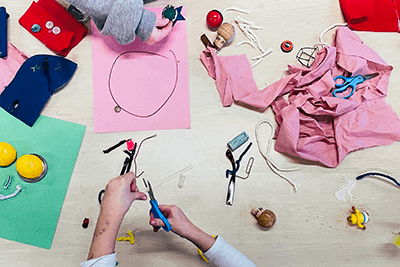 If you are familiar with MPA, then you are probably also familiar with the AnnMarie Thomas Makerspace. Electrifying in its concept and its form, this area of the school houses the intersection of creativity and innovation. The Makerspace is the physical manifestation of MPA’s long-standing belief that learning should be hands-on, experiential, and joyful.
If you are familiar with MPA, then you are probably also familiar with the AnnMarie Thomas Makerspace. Electrifying in its concept and its form, this area of the school houses the intersection of creativity and innovation. The Makerspace is the physical manifestation of MPA’s long-standing belief that learning should be hands-on, experiential, and joyful.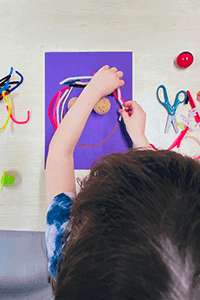 One of the most memorable projects to occur in the Makerspace this year is still adorning the outer windows of the room, prompting those who pass by to pause and share a smile that is reflecting back at them. The activity was informally and aptly named “making faces,” because that is precisely what Lower School students did. Essentially, they observed, looking for faces out in the world. And under Keith’s model, the idea was to use all of the donated, found, and collected materials at the students’ disposal in the Makerspace to create a face out of everyday objects themselves. Keith has friends at the Exploratorium in San Francisco that have been doing a similar activity that inspired this one.
One of the most memorable projects to occur in the Makerspace this year is still adorning the outer windows of the room, prompting those who pass by to pause and share a smile that is reflecting back at them. The activity was informally and aptly named “making faces,” because that is precisely what Lower School students did. Essentially, they observed, looking for faces out in the world. And under Keith’s model, the idea was to use all of the donated, found, and collected materials at the students’ disposal in the Makerspace to create a face out of everyday objects themselves. Keith has friends at the Exploratorium in San Francisco that have been doing a similar activity that inspired this one. 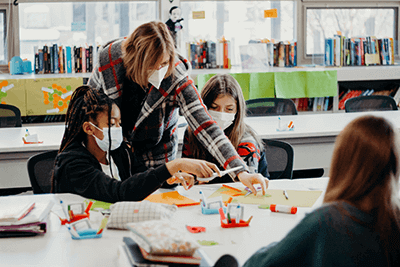 from Bill Hudson, Head of School
from Bill Hudson, Head of School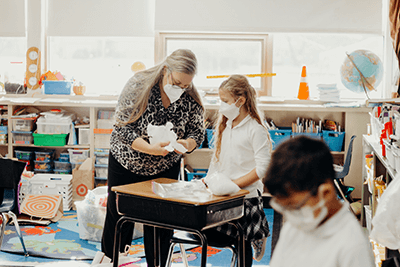 from Renee Wright, Lower School Director
from Renee Wright, Lower School Director January Walks with Dogs
January Walks with Dogs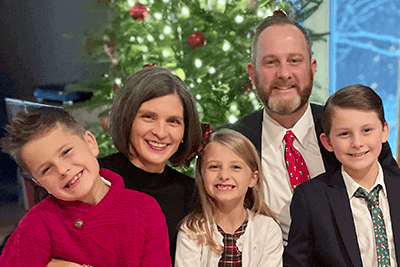 How many years have you been part of the MPA community?
How many years have you been part of the MPA community?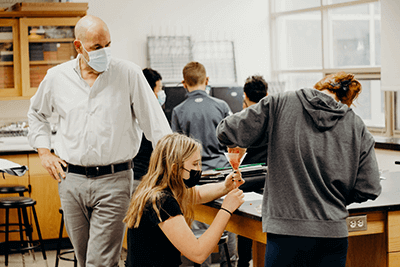 from Dr. Bill Hudson, Head of School
from Dr. Bill Hudson, Head of School January Walks with Dogs
January Walks with Dogs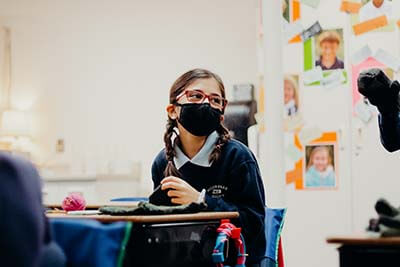 from Dr. Bill Hudson, Head of School
from Dr. Bill Hudson, Head of School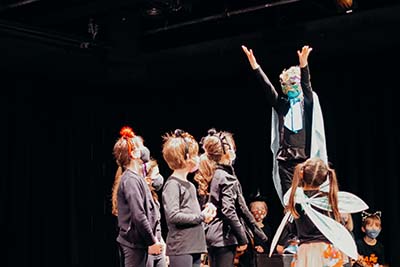 rom Renee Wright, Lower School Director
rom Renee Wright, Lower School Director